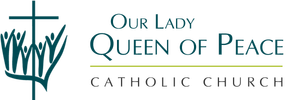It is common technique of Mark to “sandwich” two stories or events in the telling of an event in the life of Jesus. There are often multiple things going on around Jesus in Mark’s Gospel -- Jesus is always presented as harried and hurried, moving from place to place at breakneck speed, leaving the reader almost breathless.
Jesus is so bound up in preaching the Reign of God, in healing the sick, in reaching out to the poor and the marginalized, making sure that the sinner and the outcast know that they are the beloved of God to the point that it seems that even his own family wonders about his sanity.
And yet he preaches with such authority that the people’s hearts are transformed and more and more come to believe in him as the Messiah, the long awaited One of Israel!
But others refuse to see the signs and wonders he works because their eyes and hearts are closed to the very living grace of God that stood before them.
As Jesus proclaims that “his family” was made up of all those who do the will of God, it must have been shocking to ears of the hearers! In Jesus’ culture, how one was related to another person was absolutely essential to the individual’s personal identity and their place in the family and in the wider community. So for Jesus to redraw the lines of familial relationships and tie it to doing the will of God, was truly a bold statement, that would clearly impact societal norms.
On one level Jesus is expanding people’s identity and relationships to one another to include people who otherwise would be outsiders, now becoming insiders, becoming part of the clan and no longer foreigners. This would come about by doing the will of God, as understood by the way Jesus was preaching it! By loving God with your whole being and your neighbor as yourself!
In the first reading from Genesis, we have the story of the origin of sin. And as misogynistic as this story presents, almost all cultures have stories that seek to explain how sin and evil got into the world.
Handed down from one generation to the next these stories were meant to help explain the brokenness of the human condition, to tell us something about God and our relationship to God, our relationships with each other, and how we’ve ended up with all the greed, sin and evil in the world today.
At some level the story of the forbidden apple is a story of scapegoating, blaming the other for our own poor choices or inaction. We see it all the time in our politicians, they scapegoat “the other party” and/or blame it on “the foreign evil”. We see it in schools, workplaces, in the church, in our personal relationship and in our own families. The lack of ability to take responsibility for one’s actions and decisions is truly a sign of our times.
But following Jesus’ example is the cure for our times! Opening our eyes and our hearts to his presence in our midst, in our lives, can transform us just as it did his first disciples. Transform us to truly see all others, no matter how different they seem to be from us…to see them as Jesus sees them, to love them as sisters and brothers, members of our family, members of God’s family!
Where do I see Jesus in my life? What action is my discipleship calling me to today? And in what ways can I best live out my faith and proclaim Jesus’ Gospel of love, acceptance and forgiveness through my daily words and actions?
Blessings,
Fr. Tim

 RSS Feed
RSS Feed
